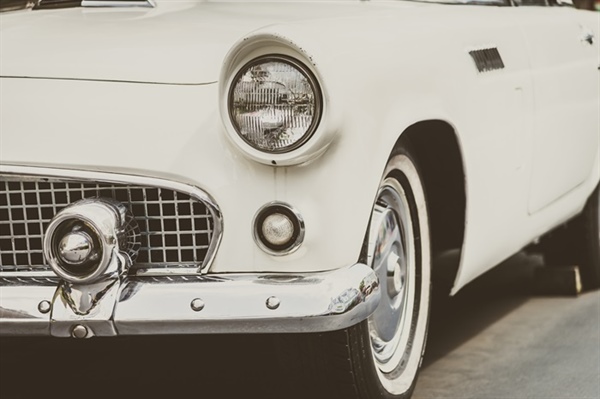How Does Insuring Classic Cars Differ from Regular Auto Insurance in Faribault, MN?

Classic cars are not just vehicles; they are investments, pieces of history, and beloved collectibles for many owners. Insuring a classic car in Faribault, MN, requires a different approach than regular auto insurance. Classic car insurance policies are often tailored to the unique needs of vintage and collectible cars, taking into account factors such as valuation, mileage, and even storage conditions.
Unlike standard auto insurance, which bases premiums on factors like the car's age, mileage, and driving habits, classic car insurance considers the vehicle’s value as an essential aspect. Whether you’re protecting a fully restored 1965 Ford Mustang or a classic Cadillac that still needs some TLC, the insurance process involves specialized coverage to ensure the preservation of these historic vehicles.
In this article, we will explore several key differences between classic car insurance and standard auto insurance, addressing important questions like how these vehicles are valued, the impact of mileage limits, restoration coverage, theft protection during storage, and what factors influence the insurance premium in Minnesota. For classic car enthusiasts, this information is crucial to ensure that their prized possessions are well-protected.
What Is the Process of Valuing a Classic Car for Insurance Purposes?
Valuing a classic car is one of the key differences between insuring a classic car and a regular vehicle. Unlike typical auto insurance, which uses market value or depreciation to determine the car's worth, classic car insurance is often based on an "agreed value" or "stated value" policy. The agreed value is a predetermined figure between the car owner and the insurance provider based on factors such as the car’s condition, model, rarity, and the results of any professional appraisals.
For instance, owners may need to provide documentation such as restoration records, photographs, and expert evaluations to establish the value. In some cases, insurance companies might also require an independent appraisal to verify the vehicle’s condition. This thorough valuation ensures that the insurance payout will reflect the true value of the car if a claim is made, which is significantly different from how regular cars are valued based on market depreciation.
How Do Mileage Limits Impact Classic Car Insurance Policies?
One unique aspect of classic car insurance policies is mileage restrictions. Unlike regular auto insurance policies, which are designed for daily drivers, classic car insurance is meant for cars that are driven sparingly, such as in car shows or weekend cruises. Most insurers place mileage limits on classic cars, typically ranging from 1,000 to 5,000 miles per year, depending on the policy.
Exceeding these mileage limits can result in policy limitations or higher premiums because it increases the risk of wear and tear, accidents, and other incidents. Classic car owners in Faribault, MN, should carefully track their mileage and discuss options with their insurer if they plan on using their vehicle more frequently. Some insurance companies offer customizable mileage options based on the owner's usage patterns, so it's important to be clear on your driving habits when selecting a policy.
What Restoration Activities Are Covered Under Classic Car Insurance?
Restoration coverage is an important aspect of classic car insurance that isn’t typically part of standard auto policies. Many classic car insurance policies offer coverage for vehicles undergoing restoration, including parts, labor, and materials. The extent of coverage can vary depending on the policy, but generally, the policy protects against damage or theft while the car is being restored, whether in a garage or at a professional restoration shop.
Classic car owners should review the specifics of their policy to ensure that all restoration-related risks are covered. Some policies may require you to provide receipts and updates on the restoration process, while others may cover specific stages of restoration, such as bodywork, engine rebuilding, or repainting. Restoration coverage ensures that the investment made in restoring a vintage vehicle is protected from unforeseen events.
How Does Classic Car Insurance Address Theft and Damage During Storage?
Storage conditions play a crucial role in classic car insurance. Insurers often require classic cars to be stored in a secure, enclosed space when not in use, such as a garage or a professional storage facility. Theft and damage during storage are major concerns for classic car owners, as these vehicles are often more vulnerable to break-ins and accidents due to their value.
To mitigate these risks, classic car insurance policies generally provide coverage for theft, vandalism, and damage that occurs while the vehicle is stored. In some cases, insurance companies may offer discounts if the car is equipped with advanced security features such as alarm systems, GPS trackers, or surveillance cameras. It's also essential for owners to maintain documentation on the car's condition and security measures, as this can influence the claims process in case of an incident.
What Factors Determine the Premium for Classic Car Insurance in Minnesota?
Several factors influence the premium for classic car insurance in Minnesota. The car’s agreed value is one of the primary determinants, as higher-value vehicles typically require higher premiums. Other factors include the car’s make, model, condition, and how it is used. Insurers also consider the location of the vehicle and its storage conditions; for example, cars stored in secure facilities or low-crime areas may qualify for lower rates.
Mileage, as discussed earlier, also plays a significant role in determining the premium. Additionally, the owner’s driving history, age, and experience with classic cars can impact the cost of insurance. Insurers may offer discounts for experienced collectors or members of classic car clubs. It's essential to compare these factors to get the best possible rate for your classic car insurance policy in Minnesota.
For more information, reach out to RJR Faribo Insurance by calling us at (952) 931-9999 (Eden Praire) and (507) 334-3929 (Faribault) to discuss your classic car insurance options today.